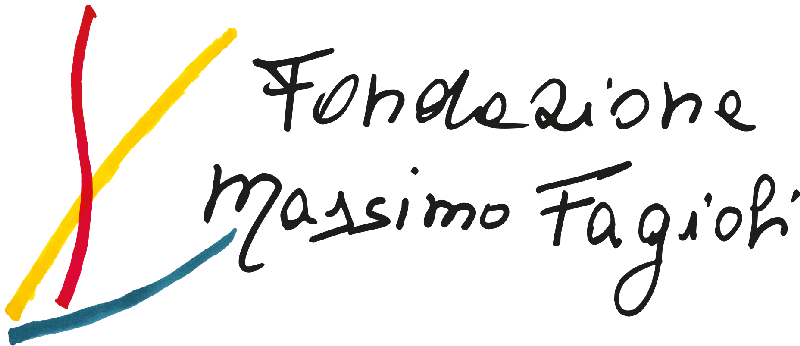The concept of “reaction” can be applied to every living form, but in the case of human beings it comes charged with special significance. During childbirth, brain matter reacts through the retina, and because of the “disappearance of the external nonhuman world” fantasy drive, the “recollection of the previous condition” fantasy drive is activated, with the formation in the subject of an inner image (capability to imagine). Assuming a dimension of “healthy irrational”, we can consider this to be the dimension that drives us to other human beings (the hope that there is a breast).
With TN (Teoria della nascita, or Birth Theory) we can hypothesize an “ethical reactivity”, which in Massimo Fagioli’s language is described as a rejection of destructiveness. In fact, Ethics belongs to the internal reality of the subject and does not concern a justification-oriented logical rationality (rational critique) of our behavior, nor can it be based on such abstract principles as good and evil, as it historically happened.
This is how Fagioli put it:
It’s not that I don’t hit a child because the rules say I can’t do it, nor because it’s bad. I don’t hit him because my arm gets paralyzed. In other words: there’s a physical reality that doesn’t allow me to harm a child, my movement loses strength. It’s not a prohibition of the superego nor one of reason, It’s an inner reality. And I think this inner reality belongs to a great number of people, they just don’t realize it.
To this consideration we can add Eugenio Lecaldano’s:
Then the morality we need to confront violence, genocide, torture, discrimination is not the one made up of absolute norms and principles preached from on high by someone who claims they are based on reason: we need a morality that is rooted in our feelings and emotions. Those who moralize over our private lives in the name of their absolute, rational principles are merely continuing to propose the form of abstract morality that has proved totally ineffective throughout the history of the 20th century.
The rational and religious foundations of good and evil have failed because they are affectless and abstracted from the real human world. The grounding in the affectivity of human feelings and emotions leads to an ethical reaction that originates deep within the human identity – an identity that is irrational at birth.
Here Fagioli refers to an article in the Italian newspaper “Repubblica”:
I don’t like the idea of moral necessity because it recalls the idea that the split man is naturally bad. It says that it is necessary for reason to command and control what is not-reason, which would be beastly, ferocity of man towards other men. […] And I see two puppets supporting each other, the one blind called faith and the other lame called reason, saying each other that ethics questions happiness and deduces its principles from reason.
On the basis of TN, therefore, we can hypothesize an absolutely new ethical approach, which is expressed through a “healthy ethical reaction” derived from the concept of the healthy irrational. Indeed, this emergent idea – an idea never thought of before – must confront the pathological aspects of denial and nullification that we still identify in justifications of a rational-ethical kind. This ethical reaction dynamics, which Fagioli defines as the reaction of the sensibility of thought without consciousness, also invests the political and economic field by unmasking the various forms of dehumanization expressed in dictatorial and colonialist regimes and that are also present in all forms of racism.
With TN we can identify ethical behavior as a human behavior that enhances the identity of the human subject and enables its development. The possibility of realizing such an ethical reaction essentially starts from care, personal training, and research as elaborated during Analisi Collettiva (collective analysis) by Fagioli. When a form of destructiveness (pathological aspects) is present, there can be no ethics either in relation to others or to the environment and other living beings. As examples in which the ethical model based on the violence of rational thought was mostly clearly expressed, I have chosen two particularly illustrative historical moments: Nazi Germany and the Catholic Inquisition. Without attempting to trace their history, they were used only to highlight how ethical aspects were altered by a violent rationality that allowed the destruction of the deepest human qualities both in the perpetrators and their victims.
Bibliography
- Bauman, Z. (1992). Modernità e Olocausto. Bologna: Il Mulino.
- Burgio, A. & Lalatta Costerbosa, M. (2016). Orgoglio e genocidio: L’etica dello sterminio nella Germania nazista. Bologna: Derive Approdi.
- Engelhardt Jr, H.T. (1999). Manuale di bioetica. Milano: Il Saggiatore.
- Fagioli, M. (2016). Istinto di morte e conoscenza. Roma: L’Asino d’oro.
- Fagioli, M. (2012). Teoria della nascita e castrazione umana. Roma: L’Asino d’oro.
- Fagioli, M. (2018). Left 2015. Roma: L’Asino d’oro.
- Lecaldano, E. (2004). Bioetica: Le scelte morali. Roma-Bari: Laterza.
- Mereu, I. (2000). Storia dell’Intolleranza in Europa. Milano: Bompiani.
- Ricciardi, C. (2019). Vite senza valore: Etica, Politica, Biologia. Brescia: Wondermark.
